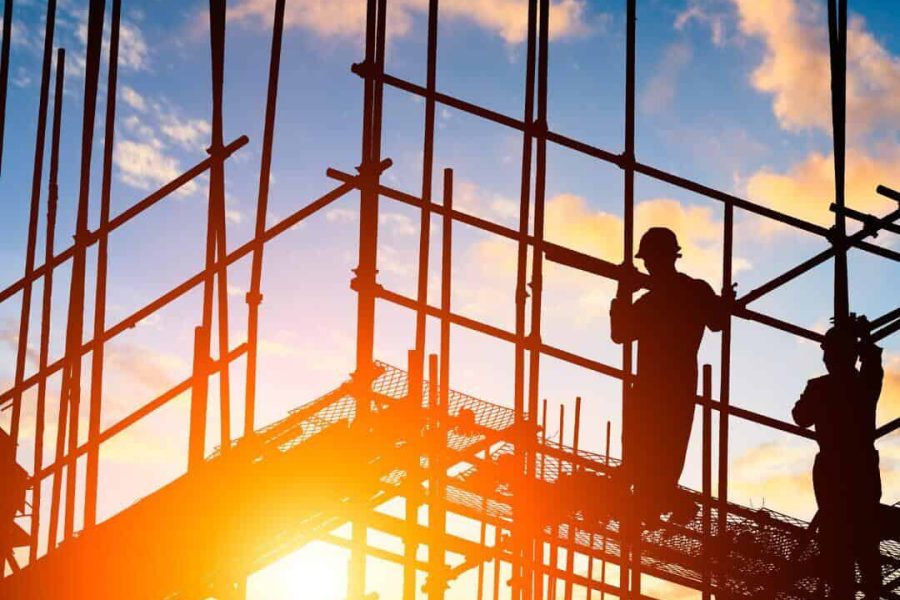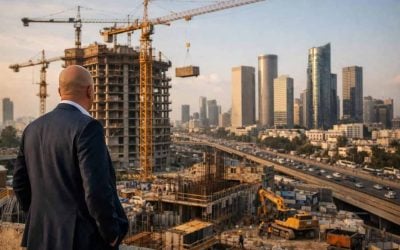1. What Is a Building Permit and Why Is It Necessary?
A building permit, or “Rishuy Bniyah” (רישיון בנייה) in Hebrew, is an official authorization from the local planning and construction committee. This permit is mandatory for:
Whether you’re planning to build a new home, extend your current space, or renovate an existing structure in Israel, understanding the building permit process is crucial. Navigating this process ensures your project complies with all legal requirements and progresses smoothly. This guide will walk you through each step of the building permit process, with a particular focus on Jerusalem, to help you manage your project effectively.
| Situations Requiring a Building Permit | Description | Situations Exempt from a Building Permit | Description |
|---|---|---|---|
| New Construction | Constructing new buildings, whether residential, commercial, or industrial. | Minor Fences | Fences up to 1.5 meters high with supporting walls no taller than 1 meter. |
| Extensions and Additions | Adding new rooms, garages, balconies, or protected rooms (MAMAD) to existing structures. | Pergolas and Awnings | Pergolas and awnings that adhere to specific size and attachment guidelines. |
| Structural Changes | Making structural alterations such as removing load-bearing walls, altering foundations, or changing the building’s overall structure. | Small Storage Structures | Small structures like bicycle sheds up to 6 square meters and 3 meters in height. |
| Changing Use | Converting a residential property to commercial use, or vice versa. | Temporary Structures | Temporary structures such as tents, canopies, or containers. |
2. When Is a Building Permit Required?
Understanding when you need a building permit can save you time, money, and legal troubles. While many construction activities require a permit, certain minor works may be exempt under Regulation 101 of the Planning and Building Law.
Situations Requiring a Building Permit:
- New Construction: Whether you’re building a house, apartment complex, or commercial building.
- Extensions and Additions: Adding new rooms, garages, balconies, or protected rooms (MAMAD).
- Structural Changes: Removing or adding load-bearing walls, altering foundations, or changing the building’s overall structure.
- Changing Use: Converting a property from residential to commercial or vice versa.
Exemptions from Building Permits:
Certain minor construction works are exempt from requiring a permit under Regulation 101, provided they meet specific criteria:
- Fences: Up to 1.5 meters high with supporting walls no taller than 1 meter.
- Pergolas and Awnings: As long as they adhere to specific size and attachment guidelines.
- Minor Additions: Such as small bicycle sheds or storage structures up to 6 square meters and 3 meters in height.
- Temporary Structures: Including tents, canopies, or containers.
- Accessibility Enhancements: Minor modifications to improve accessibility without altering the building’s structure.
Important: Even if your project seems to fall under these exemptions, it’s advisable to consult with the local planning committee to confirm eligibility and ensure compliance with all guidelines.
3. Understanding Zoning and Building Rights
Before planning any construction, it’s crucial to understand your property’s zoning classification and building rights. These elements dictate what you can and cannot do on your property.
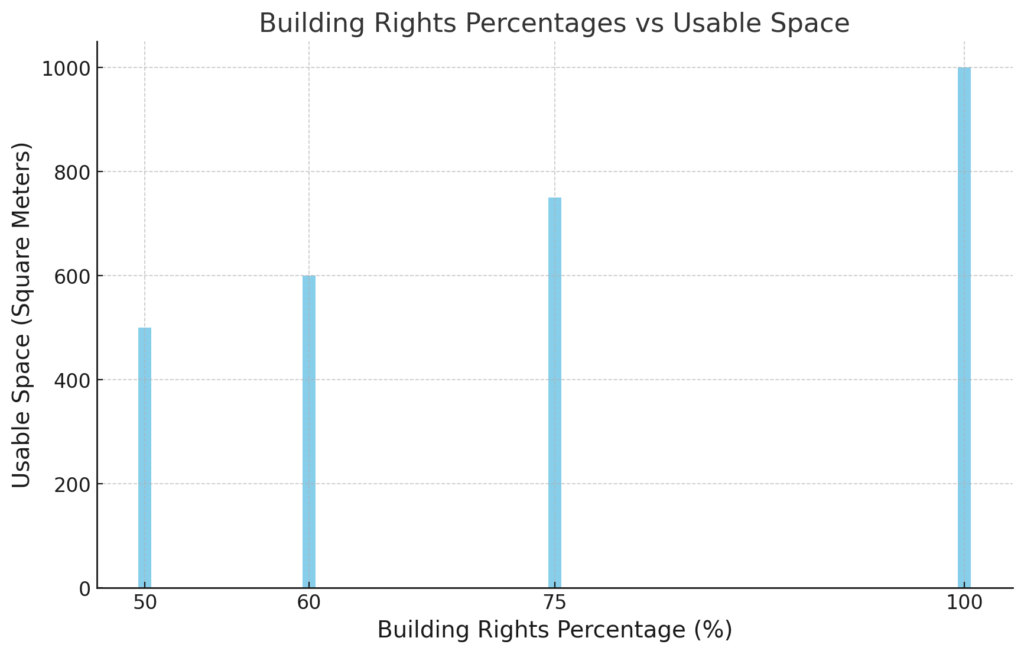
4. The Step-by-Step Building Permit Application Process

The building permit application process in Israel is systematic and involves several stages to ensure compliance with all regulations. Here’s how to navigate it:
A. Engage a Professional Permit Preparer
Only certified professionals—licensed architects, engineers, building technicians, or practical engineers—can prepare and submit your building permit application.
- Role of the Permit Preparer:
- Design Development: Creating detailed architectural plans that comply with zoning regulations and the local master plan.
- Compliance Assurance: Ensuring all aspects of the design meet regulatory standards.
- Application Submission: Submitting the permit application on your behalf through the online system “Rishuy Zamin” (רישוי זמין).
B. Requesting Permit Information (מידע להיתר)
This step involves gathering comprehensive data about your property, including its size, ownership details, maps, and existing plans.
- How to Request:
- Submit a request to the local planning and construction committee via the Rishuy Zamin system.
- Contents of Permit Information:
- Zoning regulations
- Permissible building rights
- Spatial conditions
- Specific requirements or restrictions
- Timeline:
- The permit information is typically provided within 30 working days, with an initial review taking up to 5 working days. This information remains valid for two years from the date of issuance.
C. Planning (תכנון)
Your architect or engineer will develop detailed architectural plans that comply with the zoning regulations and the local master plan.
- Inclusion of Approvals: Obtain necessary approvals from relevant authorities as specified in the permit information.
- Professional Assistance: Work closely with your architect or engineer to ensure all aspects of the design meet the required standards.
D. Submitting the Permit Application (הגשת בקשה להיתר)
The permit application must be submitted by a registered architect, engineer, or practical engineer through the Rishuy Zamin online system.
- Required Documents:
- Official application form
- Architectural plans
- Land rights documentation
- Maps
- Necessary approvals from various departments
- Stages Before Permit Issuance:
- Initial Review (בדיקת תנאי סף): Ensures the application is complete and includes all required documents. This takes up to 10 working days.
- Spatial Control Check (בקרה מרחבית): A detailed examination to ensure compliance with zoning laws and planning regulations.
- Committee Decision (החלטת ועדה): The local planning and construction committee reviews the application and decides to approve, reject, or conditionally approve the permit.
- Timeline for Decision:
- Without Relaxations: Up to 45 working days.
- With Relaxations: If deviations from the master plan are involved, the decision may take up to 90 working days.
- Design Control (בקרת תכן): An engineering review to ensure the design meets safety and quality standards. This step can take up to 30 working days and may involve additional inspections by specialized control institutes.
E. Appeal Committee (וועדת הערר)
If your building permit application is rejected or conditionally approved, you have the right to appeal through the Appeal Committee (וועדת הערר).
- Conditions for Permit Approval:
- Design Control: Ensuring the construction adheres to safety and engineering standards.
- Payment of Fees: Completing all payments as specified under Section 145(d) of the Planning and Building Law.
- Bond Deposit: Depositing a bond as per Regulation 70, if required.
- Israel Lands Authority Approval: For properties under the Israel Lands Authority, obtaining their consent.
- Submission of Reports or Declarations: Providing necessary reports or declarations by the applicant’s representative.
- Additional Conditions by the Licensing Authority:
- Compliance with Planning Regulations: Construction must follow the applicable plans, laws, and regulations.
- Deadline for Appeals: Specifying the timeframe for submitting an appeal against the decision.
- Execution Conditions: Outlining conditions for commencing work to ensure adherence to approved plans.
- Progress Conditions: Setting requirements for the construction process.
- Final Inspection Conditions: Detailing conditions for obtaining the final occupancy certificate.
- Reasons for Permit Rejection:
- Non-Compliance with Spatial Regulations: The application doesn’t meet spatial planning conditions.
- Objections from Property Owners: Objections from other property owners can complicate approval.
- Disapproval from Other Authorities: Disapproval from relevant authorities or bodies.
- Delayed Decision: If the Licensing Authority fails to decide within 45 days from application submission, the application is considered rejected.
- Reapplication:
- If your application is rejected, you can resubmit it provided the permit information is up-to-date. The new submission will proceed directly to the spatial control stage.
- Validity of Approval Decisions:
- The decision to approve a permit is valid for two years from the date of receipt.
- Extension Requests: Applicants may request a one-year extension no later than 15 days before the permit’s expiration.
- Maximum Validity: Building permits can be extended up to six years in total.
5. Design Control (בקרת תכן): Ensuring Safety and Quality

Design Control is an essential engineering oversight process that ensures building plans meet safety, stability, and quality standards.
- Scope of Design Control:
- Structural Stability: Ensuring the building can withstand various physical stresses.
- Fire Safety: Compliance with fire safety regulations.
- Civil Defense: Incorporating features for civil protection.
- Sanitation and Waterproofing: Ensuring proper sanitation systems and waterproofing measures.
- Integration: Coordinating all safety and quality aspects seamlessly.
- Purpose: To minimize risk and enhance the safety and quality of construction by adhering to relevant standards and regulations.
- Execution:
- Control Institute (מכון הבקרה): Conduct design control if required by regulations.
- Licensing Authority Review: Alternatively, design control may be conducted by the Licensing Authority.
- Submission and Evaluation:
- Documentation: Submit building permit applications along with all required design control documents.
- Assessment Timeline: The engineer will review the design compliance within 30 days of submitting all design control documents.
- Adjustments: If non-compliance is found, the applicant must make necessary adjustments and resubmit.
The building permit application process in Israel is systematic and involves several stages to ensure compliance with all regulations. Here’s how to navigate it:
A. Engage a Professional Permit Preparer
Only certified professionals—licensed architects, engineers, building technicians, or practical engineers—can prepare and submit your building permit application.
- Role of the Permit Preparer:
- Design Development: Creating detailed architectural plans that comply with zoning regulations and the local master plan.
- Compliance Assurance: Ensuring all aspects of the design meet regulatory standards.
- Application Submission: Submitting the permit application on your behalf through the online system “Rishuy Zamin” (רישוי זמין).
B. Requesting Permit Information (מידע להיתר)
This step involves gathering comprehensive data about your property, including its size, ownership details, maps, and existing plans.
- How to Request:
- Submit a request to the local planning and construction committee via the Rishuy Zamin system.
- Contents of Permit Information:
- Zoning regulations
- Permissible building rights
- Spatial conditions
- Specific requirements or restrictions
- Timeline:
- The permit information is typically provided within 30 working days, with an initial review taking up to 5 working days. This information remains valid for two years from the date of issuance.
C. Planning (תכנון)
Your architect or engineer will develop detailed architectural plans that comply with the zoning regulations and the local master plan.
- Inclusion of Approvals: Obtain necessary approvals from relevant authorities as specified in the permit information.
- Professional Assistance: Work closely with your architect or engineer to ensure all aspects of the design meet the required standards.
D. Submitting the Permit Application (הגשת בקשה להיתר)
The permit application must be submitted by a registered architect, engineer, or practical engineer through the Rishuy Zamin online system.
- Required Documents:
- Official application form
- Architectural plans
- Land rights documentation
- Maps
- Necessary approvals from various departments
- Stages Before Permit Issuance:
- Initial Review (בדיקת תנאי סף): Ensures the application is complete and includes all required documents. This takes up to 10 working days.
- Spatial Control Check (בקרה מרחבית): A detailed examination to ensure compliance with zoning laws and planning regulations.
- Committee Decision (החלטת ועדה): The local planning and construction committee reviews the application and decides to approve, reject, or conditionally approve the permit.
- Timeline for Decision:
- Without Relaxations: Up to 45 working days.
- With Relaxations: If deviations from the master plan are involved, the decision may take up to 90 working days.
- Design Control (בקרת תכן): An engineering review to ensure the design meets safety and quality standards. This step can take up to 30 working days and may involve additional inspections by specialized control institutes.
E. Appeal Committee (וועדת הערר)
If your building permit application is rejected or conditionally approved, you have the right to appeal through the Appeal Committee (וועדת הערר).
- Conditions for Permit Approval:
- Design Control: Ensuring the construction adheres to safety and engineering standards.
- Payment of Fees: Completing all payments as specified under Section 145(d) of the Planning and Building Law.
- Bond Deposit: Depositing a bond as per Regulation 70, if required.
- Israel Lands Authority Approval: For properties under the Israel Lands Authority, obtaining their consent.
- Submission of Reports or Declarations: Providing necessary reports or declarations by the applicant’s representative.
- Additional Conditions by the Licensing Authority:
- Compliance with Planning Regulations: Construction must follow the applicable plans, laws, and regulations.
- Deadline for Appeals: Specifying the timeframe for submitting an appeal against the decision.
- Execution Conditions: Outlining conditions for commencing work to ensure adherence to approved plans.
- Progress Conditions: Setting requirements for the construction process.
- Final Inspection Conditions: Detailing conditions for obtaining the final occupancy certificate.
- Reasons for Permit Rejection:
- Non-Compliance with Spatial Regulations: The application doesn’t meet spatial planning conditions.
- Objections from Property Owners: Objections from other property owners can complicate approval.
- Disapproval from Other Authorities: Disapproval from relevant authorities or bodies.
- Delayed Decision: If the Licensing Authority fails to decide within 45 days from application submission, the application is considered rejected.
- Reapplication:
- If your application is rejected, you can resubmit it provided the permit information is up-to-date. The new submission will proceed directly to the spatial control stage.
- Validity of Approval Decisions:
- The decision to approve a permit is valid for two years from the date of receipt.
- Extension Requests: Applicants may request a one-year extension no later than 15 days before the permit’s expiration.
- Maximum Validity: Building permits can be extended up to six years in total.
6. Report by the Applicant’s Engineer (דו”ח עורך הבקשה)
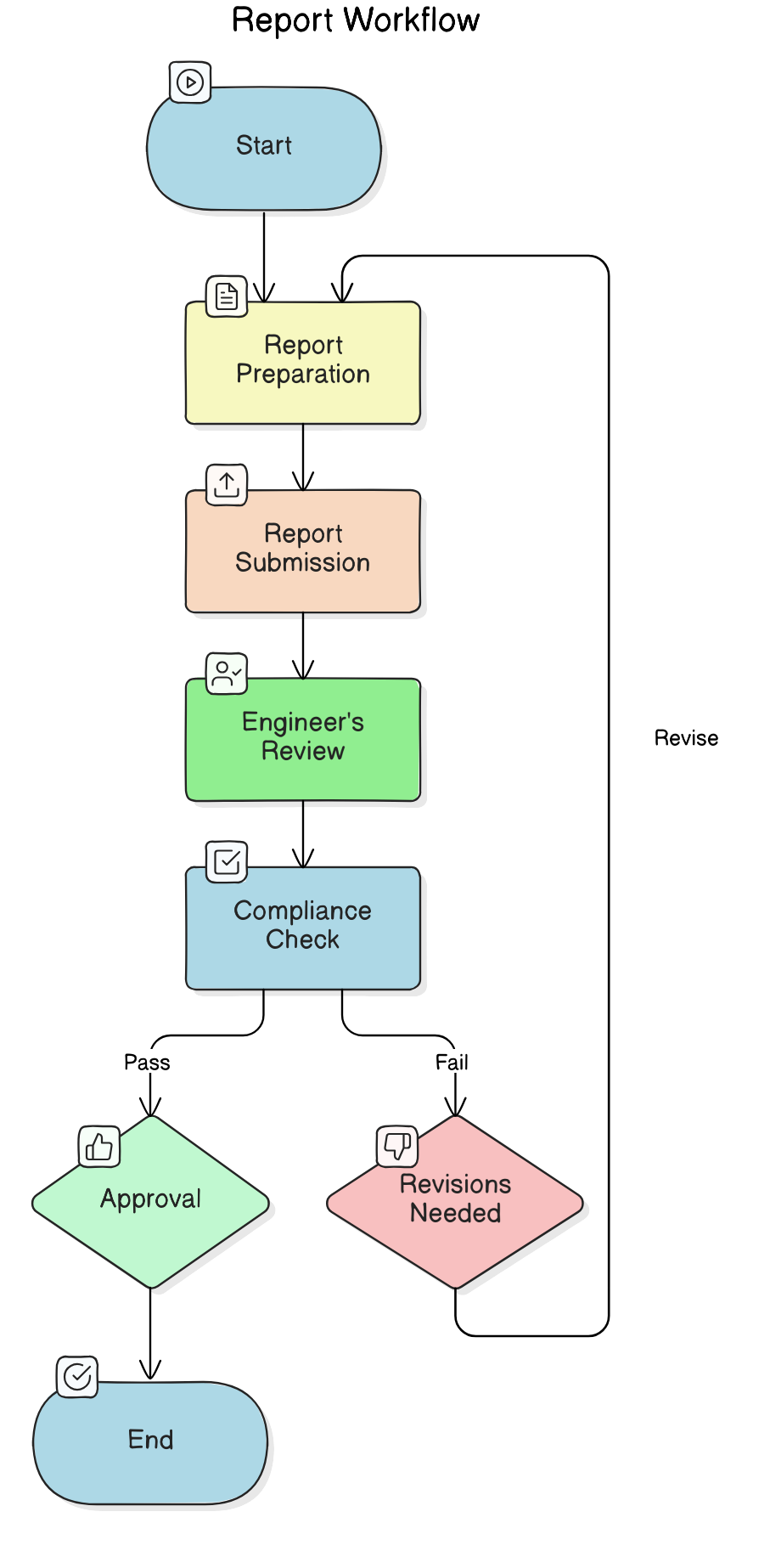
fter completing the Design Control, the applicant’s engineer must submit a detailed report.
- Content of the Report:
- Spatial Adjustments: Detail any spatial changes made to the application following Design Control.
- Declaration: If no changes were made, a signed declaration stating that the design meets all requirements.
- Review Process:
- Engineer’s Evaluation: The engineer assesses whether the spatial changes comply with the Licensing Authority’s decision.
- Outcome: If the report is satisfactory, the application proceeds; otherwise, further modifications or a new application may be required.
7. Cost Considerations
Understanding the financial aspects of obtaining a building permit is crucial for budgeting your project.
- Application Fees: These vary based on project size and location, ranging from hundreds to tens of thousands of shekels.
- Development Levies: Additional costs imposed by the local council for property improvements and infrastructure development.
- Deposit Payments: Typically, 20% of the licensing fee is required upfront as a deposit.
- Potential Fines: Non-compliance or illegal construction can result in significant penalties, including hefty fines and mandated restorations.
| Cost Component | Estimated Amount (ILS) | Description |
|---|---|---|
| Application Fees | 500 - 10,000 | These fees vary based on the size and location of the project. |
| Development Levies | 1,000 - 50,000 | Levies imposed by the local council for property improvements and infrastructure development. |
| Deposit Payments | 20% of licensing fee | A typical upfront payment required during the permit process. |
| Potential Fines | Varies depending on the violation | Fines for non-compliance or illegal construction, including penalties and required restorations. |
8. Validity and Extensions of Building Permits
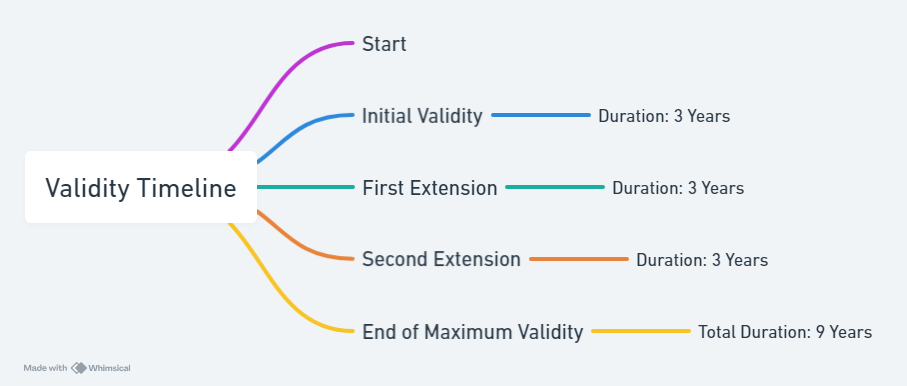
Building permits come with a defined validity period, and extensions may be necessary if construction is delayed.
- Initial Validity: Building permits are valid for three years from the date of issuance.
- Extensions:
- First Extension: Apply for an additional three years, citing reasons for delays.
- Second Extension: If needed, another three-year extension can be requested, allowing a total validity of six years.
- Importance of Timely Completion: Failure to complete construction within the permit’s validity can lead to the need for extensions or potential penalties, emphasizing the importance of adhering to timelines.
9. Compliance and Legal Considerations
Maintaining compliance throughout the construction process is crucial to avoid legal issues and ensure the safety and legality of your building.
- Legal Construction: All external modifications require a building permit. Internal renovations generally do not unless they affect the building’s structure or systems.
- Illegal Construction: Building without a permit is illegal and subject to fines, demolition orders, or enforced legalization procedures.
- Retroactive Permits: In some cases, illegal structures can be legalized by applying for permits retroactively, provided they comply with current regulations. However, this process is stringent and not always guaranteed.
10. Exemptions from Building Permits (פטור מהיתר בנייה)
Project Exemption Checklist
Engineering Simplicity: The project is straightforward from an engineering perspective.
Minimal Impact: The project poses no significant risk or disturbance.
Aesthetic Consistency: The project maintains the building’s appearance.
Structural Integrity: The project does not compromise the building's structure.
Local Guidelines: The project meets all local spatial guidelines and conditions.
If all boxes are checked, the project may qualify for an exemption.
Consult with the local planning committee to confirm eligibility.
Under Regulation 101 (תקנה 101) of the Planning and Building Law, certain minor construction works are exempt from requiring a building permit. These exemptions ensure that such works do not pose safety risks or significantly alter the building’s structure or appearance.
Criteria for Exemptions:
- Engineering Simplicity: Works must be straightforward from an engineering perspective.
- Minimal Impact: No significant risk, disturbance, or environmental hazard.
- Aesthetic Consistency: Little to no impact on the building’s appearance or surrounding environment.
- Structural Integrity: Must not compromise the building’s structure, stability, or systems.
Common Exempted Works:
- Construction of Fences: Up to 1.5 meters high with supporting walls up to 1 meter.
- Installing Pergolas and Awnings: Adhering to specific size and attachment guidelines.
- Minor Additions: Such as bicycle sheds, small storage structures up to 6 square meters and 3 meters in height.
- Temporary Structures: Like containers, tents, or canopies.
- Enhancements: Improving accessibility or minor infrastructure additions.
Procedure for Exempted Works:
- Verification: Consult the local planning committee to confirm eligibility for exemption.
- Reporting: Certain exempt works may still require pre- or post-construction reporting or approvals.
- Documentation: Complete and submit a “Report on Exempt Work” form if required.
Important Considerations:
- Local Guidelines: Each local committee may have specific spatial guidelines and conditions for exemptions.
- Professional Advice: It is advisable to consult with a permit preparer or the local committee before commencing any exempted work to ensure compliance.
- Conditional Exemptions: Some exempted works may still require the submission of approvals, reports, or notifications before or after construction.
11. Additional Resources and Contacts
To assist you further in navigating the building permit process, the following resources and contacts are invaluable:
- Jerusalem Municipality Building Permit Website: Visit Here
- Online Licensing Instructional Videos:
- Submission Process
- Area Plan Preparations
- Continued Area Plan
- Preparation of a Harmonica
- Certified Laboratories for MAMAD Compliance: List of Laboratories
- Professional Assistance:
- Architects and Engineers: Engaging with certified architects and engineers is crucial for preparing compliant applications and navigating the permit process efficiently.
- Legal Experts: Consulting with legal professionals specializing in construction law can provide guidance on compliance, handling objections, and appealing permit decisions.
Conclusion
Navigating the building permit process in Jerusalem, and Israel at large, requires meticulous preparation, a comprehensive understanding of zoning laws, and effective coordination with various municipal departments. By following the outlined steps, adhering to regulations, and seeking professional assistance when necessary, you can successfully obtain building permits and ensure your construction projects comply with all legal requirements.
For personalized guidance and to streamline the permit acquisition process, consider consulting with experienced architects or legal professionals specializing in Jerusalem’s building regulations.
Ready to Find Your Dream Home in Israel?
Whether you're looking to buy, rent, or invest, our team at Semerenko Group is here to help you every step of the way. Don't let bad credit or a low down payment hold you back—get started today and make your real estate dreams a reality.
Contact Us Now
